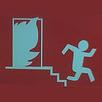|
Larry Mahnken and SG's | ||
|
| Replacement Level Yankees Weblog |

|
|
"Hey, it's free!" | ||
|
Larry Mahnken and SG's | ||
|
| Replacement Level Yankees Weblog |

|
|
"Hey, it's free!" | ||
|
Featuring: Larry Mahnken SG sjohnny TVerik Sean McNally Fabian McNally John Brattain  
The New York Yankees Vintage World Series Films DVD Set, available from A&E. Yankees Tickets World Series Tickets MLB All Star Tickets NFL Tickets Purchase your Onlineseats.com is your #1 source for MLB tickets, NY Mets Tickets, Cubs Tickets, Yankees Tickets, Red Sox Tickets, Giants Tickets, Astros Tickets, Angels Tickets, Phillies Tickets.
Buy all your MLB Tickets,
Laser Keyboard Brazil Flowers TickCo.com for premium New York Yankees Tickets Boston Red Sox Tickets Chicago white Sox Tickets A's Tickets Angels Tickets New York Mets Tickets St Louis Cardinals Tickets Cubs Tickets Dodgers Tickets Worldticketshop Football Tickets Concert Tickets Tennis Tickets Rugby Tickets Formula 1 Tickets "I'm not a pessimist, I'm an optimist. Things are really worse than I say they are." - Steve South

04/01/2003 - 04/30/2003 05/01/2003 - 05/31/2003 06/01/2003 - 06/30/2003 07/01/2003 - 07/31/2003 08/01/2003 - 08/31/2003 09/01/2003 - 09/30/2003 10/01/2003 - 10/31/2003 11/01/2003 - 11/30/2003 12/01/2003 - 12/31/2003 01/01/2004 - 01/31/2004 02/01/2004 - 02/29/2004 03/01/2004 - 03/31/2004 04/01/2004 - 04/30/2004 05/01/2004 - 05/31/2004 06/01/2004 - 06/30/2004 07/01/2004 - 07/31/2004 08/01/2004 - 08/31/2004 09/01/2004 - 09/30/2004 10/01/2004 - 10/31/2004 11/01/2004 - 11/30/2004 12/01/2004 - 12/31/2004 01/01/2005 - 01/31/2005 02/01/2005 - 02/28/2005 03/01/2005 - 03/31/2005 04/01/2005 - 04/30/2005 05/01/2005 - 05/31/2005 06/01/2005 - 06/30/2005 07/01/2005 - 07/31/2005 08/01/2005 - 08/31/2005 09/01/2005 - 09/30/2005 10/01/2005 - 10/31/2005 11/01/2005 - 11/30/2005 12/01/2005 - 12/31/2005 01/01/2006 - 01/31/2006 02/01/2006 - 02/28/2006 03/01/2006 - 03/31/2006 04/01/2006 - 04/30/2006 05/01/2006 - 05/31/2006 06/01/2006 - 06/30/2006 07/01/2006 - 07/31/2006 08/01/2006 - 08/31/2006 09/01/2006 - 09/30/2006 10/01/2006 - 10/31/2006 LINKS Yankees Sites and Columnists Nomaas.org General Baseball Sites & Columnists Rotoauthority.com The Book Blog - Playing the Percentages in Baseball(Tango, MGL, Dolphin) Yankees Blogs Almost Perfect Baby Bombers Baseball Mania Bronx Banter Dugout News Eephus Pitch Fire Joe Torre Blog Here Comes Number 27 High and Tight Lohud Yankees Blog No Sense Worrying Soft Hands The Sporting Brews The Stat Boy of the Empire Was Watching Yankees Chick Yankees Fans in Foreign Lands Yanks Blog Look what people have to say about Larry Mahnken's commentary! "Larry, can you be any more of a Yankee apologist?.... Just look past your Yankee myopia and try some objectivity." "Mr. Mahnken is enlightened."
"Wow, Larry. You've produced 25% of the comments on this thread and
said nothing meaningful. That's impressive, even for you."
"After reading all your postings and daily weblog...I believe you have truly become the Phil Pepe of this generation. Now this is not necessarily a good thing."
"you blog sucks, it reeds as it was written by the queer son of mike lupica and roids clemens. i could write a better column by letting a monkey fuk a typewriter. i dont need no 181 million dollar team to write a blog fukkk the spankeees"
"i think his followers have a different sexual preference than most men"
"Boring and predictable."
"Are you the biggest idiot ever?"
"I'm not qualified to write for online media, let alone mainstream
media."
This site is best viewed with a monitor.
|
Disclaimer: If you think this is the official website of the New York Yankees, you're an idiot. Go away. Sunday, February 29, 2004
The Journal News - A growing sports voice by Larry Mahnken
I got a mention and a quote in this newspaper article about baseball bloggers.
Bronx Banter Roundtable by Larry Mahnken
Part One, Side One
Friday, February 27, 2004
Tigers a sleeper? Not a chance by Larry Mahnken
For those of you that didn't notice, Rob Neyer responded to one of David B.'s emails in today's column. Since David doesn't have a blog of his own (why not? They're free.), and doesn't seem likely to show up at Clutch Hits, I'll give him a forum to respond.
by Larry Mahnken
This blog will become more, well, bloggish in the next few weeks. For those of you that are new here, that's pretty much how it was during the season last year, though everyone seemed to like it. This offseason I've tried to write more "column" type posts, partly because I'm looking into a possible career in journalism, but also because there wasn't very much to talk about. If I wasn't going to post every day, I might as well make big posts when I did.
Monday, February 23, 2004
Slaying the Golden Calf by Larry Mahnken
The first time you hear it, it sounds absolutely preposterous. It goes against everything you've heard, and everything you hear. After a while, if you start to look at it critically, it makes a little more sense, and then a lot more sense. Eventually, you accept it as fact, and ultimately it becomes dogma. And then other peoples' inability to see it seems absolutely preposterous.
Friday, February 20, 2004
The Greatest Pennant Race That Didn't Matter (More stat stuff) by Larry Mahnken
Okay, a couple of days ago I used Baseball Prospectus' PECOTA to compare the Yankees' current lineup to last year's lineup. Since I know that Will Carroll and Joe Sheehan read the blog--Joe in the past day, since he sent me a link to this great article he wrote two years ago comparing MLB and the NFL, and I haven't been told to cease and desist yet, I'm going to work from the assumption that my limited use of the PECOTA projections is okay for now, and I'll finish the job on that study. (The PECOTA spreadsheet is really nice, by the way, if you've got BPro Premium and haven't downloaded it, it's really worth it).
Thursday, February 19, 2004
A Modest Proposal by Larry Mahnken
Wednesday, February 18, 2004
Upon further review, Soriano is 28, not 26 (Registration Required) by Larry Mahnken
See The Changes by Larry Mahnken
Since starting this blog 9½ months ago, I've suggested several times that the Yankees trade Alfonso Soriano. This isn't because he's a bad player; indeed, he's a very good player. In 2002 he was the 10th most valuable offensive player in MLB, and in 2003, he was 15th. But when you evaluate him solely as a hitter, you see that there's about 40-50 better hitters than him. That's still very good, but the perception created by Soriano's Home Run power and Batting Average is that he's one of the 15 or so best hitters in the game, though his dreadful postseason had to have damaged that perception somewhat. Still, that's a sizeable gap between perception and reality, and there is where the opportunity for a team to improve itself exists.
Monday, February 16, 2004
It's official: Yankees land A-Rod by Larry Mahnken
Sunday, February 15, 2004
Shock and Awe by Larry Mahnken
In the winter of 1919, the Red Sox had a problem. They had followed up their 4th World's Championship in 7 seasons with a dismal 6th place finish, but their star slugger, Babe Ruth, had enjoyed a season of historic proportions. Ruth smacked 29 home runs that year, breaking the record of...well, nobody was really all that sure back then, but they were pretty darn sure it was a record. More than that, Ruth was an entirely different type of player than what baseball fans had been used to. He purposefully swung for the fences, and his mighty drives drove the crowds wild. Having Ruth was a license to print money, and The Babe knew that. So, using what little leverage he had in those reserve clause days, he went off to Hollywood to act poorly in some bad movies, and threatened to quit the game forever and take up as a lousy actor unless he got the $20,000 a year he wanted--and this just a year after signing a 3-year, $30,000 deal the previous offseason, and there was no reason to believe that he wouldn't do it again in 1920. Ruth was becoming an expensive distraction for a team that had finished in the second division, and the Red Sox didn't feel he was worth it anymore.
Wednesday, February 11, 2004
Awesomeness by Larry Mahnken
Don't click on this link unless you have nothing left to do the rest of the...ever.
More from MGL by Larry Mahnken
MGL ran a couple more simulations with the Yankees' lineup options at Baseball Primer. I suggested three lineup constructions:
Lefty third baseman by Larry Mahnken
Tverik pointed out a flaw in my last post, when I suggested Travis Lee be tried at third base. There have only been a few left-handed throwing third basemen in MLB history, and while it's possible that Lee could pull it off, it's not a great idea. It was just a throwaway comment at the end of the post, but I'll retract it.
Tony Clark, we hardly knew ye by Larry Mahnken
Hey, remember when I said it looked like the Yankees' roster was set? Yeah, just forget I ever said that.
Tuesday, February 10, 2004
by Larry Mahnken
Last season the Yankees and Red Sox had a close, thrilling race for the division title for most of the season. Neither team pulled away from the other for very long, and nearly every head-to-head matchup had first place on the line. The six-game spread in the final standings didn't do justice to how close the race was, as the season ended with both teams beating up on lousy opponents.
Saturday, February 07, 2004
By the way, this whole blog is off the record by Larry Mahnken
A few days ago, Überblogger David Pinto responded on Baseball Musings to some comments Curt Schilling made about Rob Neyer and Sabermetrics at the Sons of Sam Horn message board a couple of weeks ago. Schilling feels that statistical analysis has gone "too far in some instances". He takes it a little personally when you say that his friend Kevin Jordan is a crappy ballplayer, because even though he's a crappy ballplayer, he's really good at helping out other players, which is value in and of itself.
Wednesday, February 04, 2004
by Larry Mahnken
The loss of Aaron Boone is significant not because of what the Yankees lost, but because of what they're left with. When Boone was injured, not only were the Yankees left without an acceptable option to play third base, they were without any players who could form an even remotely effective platoon. The Yankees have been left with options that the Tigers would pass on. They didn't go from good to bad, they went from okay to awful--but in the marginal sense, that's just as big a loss.
| |||||||||